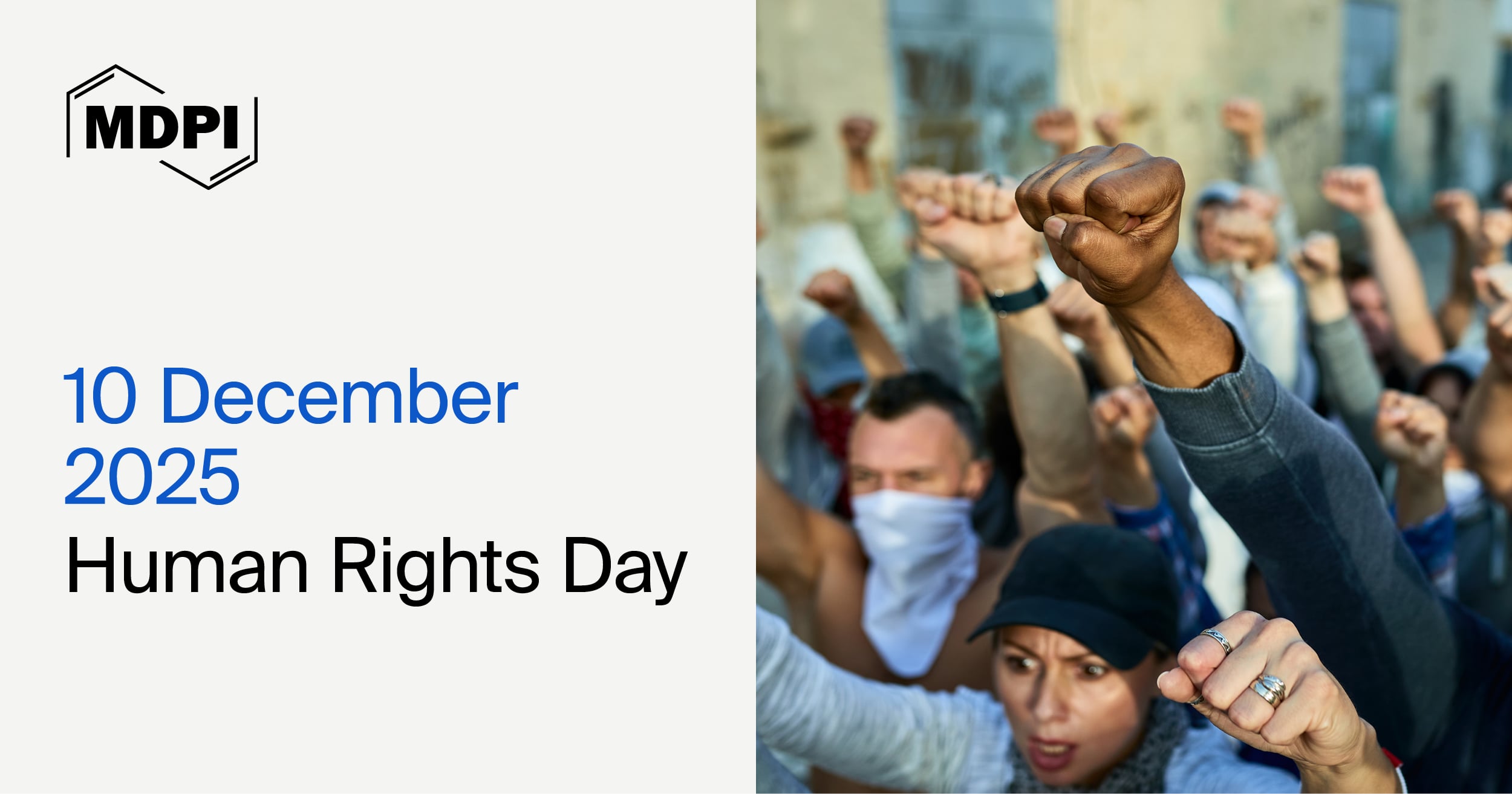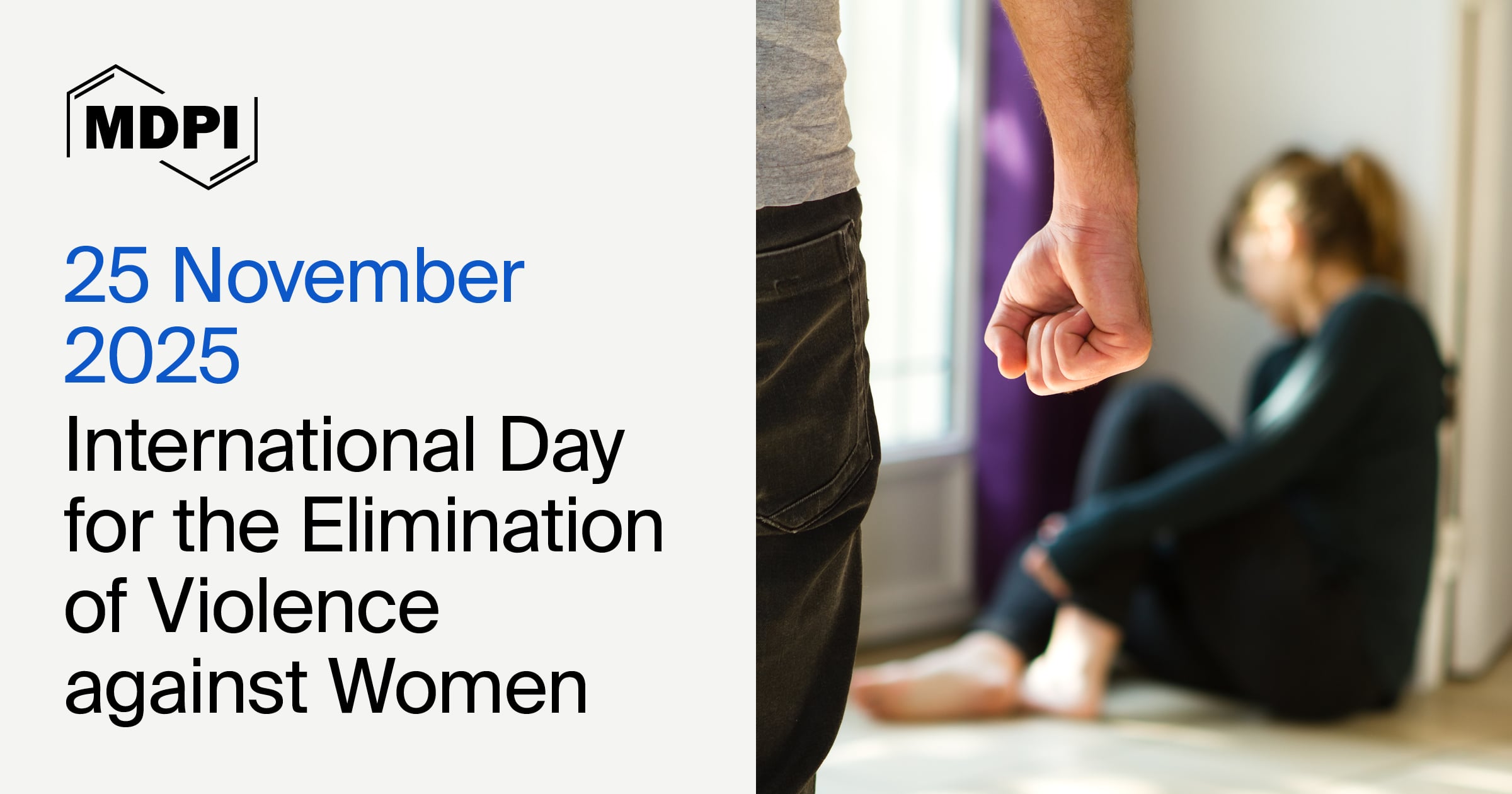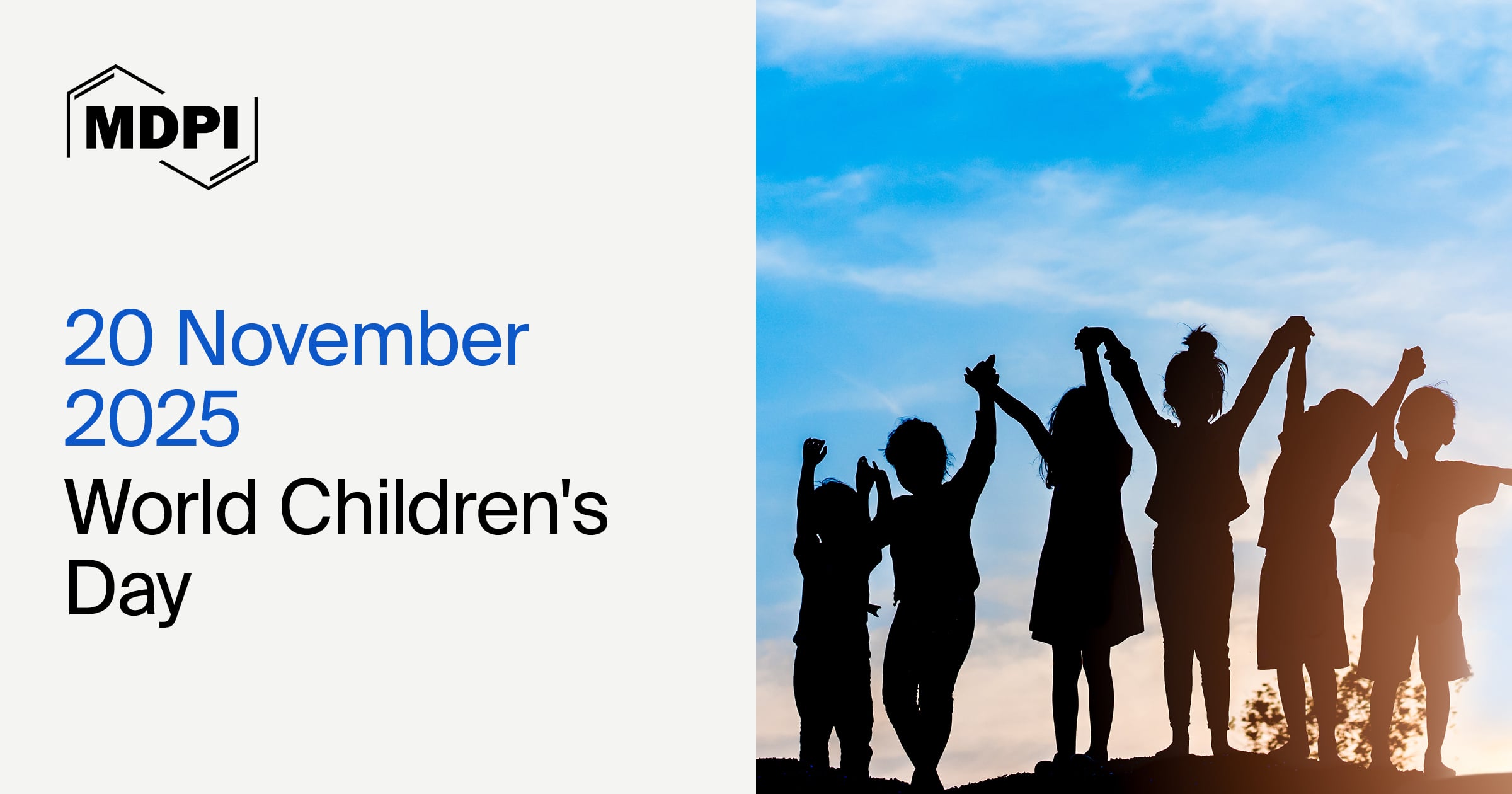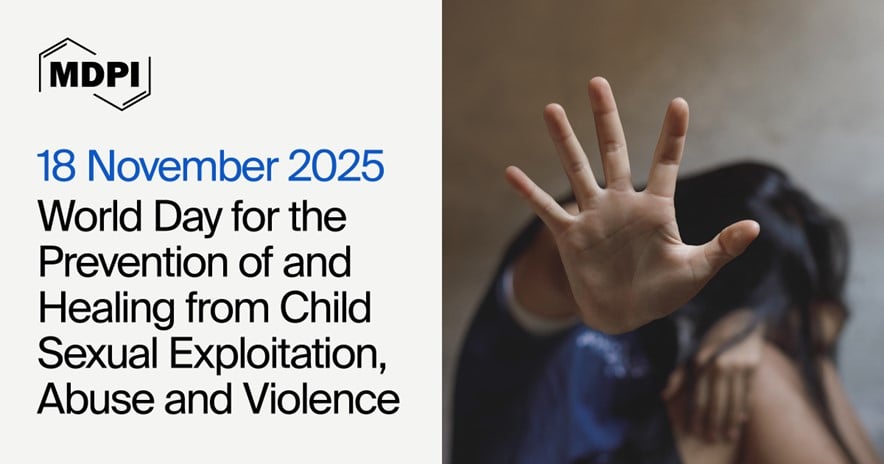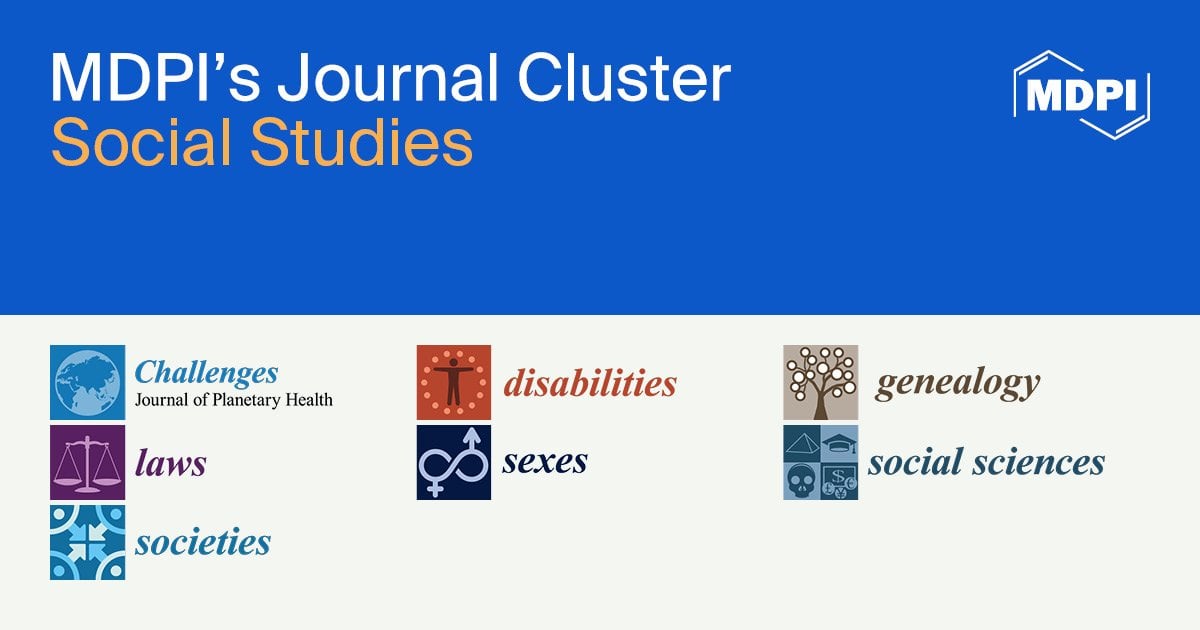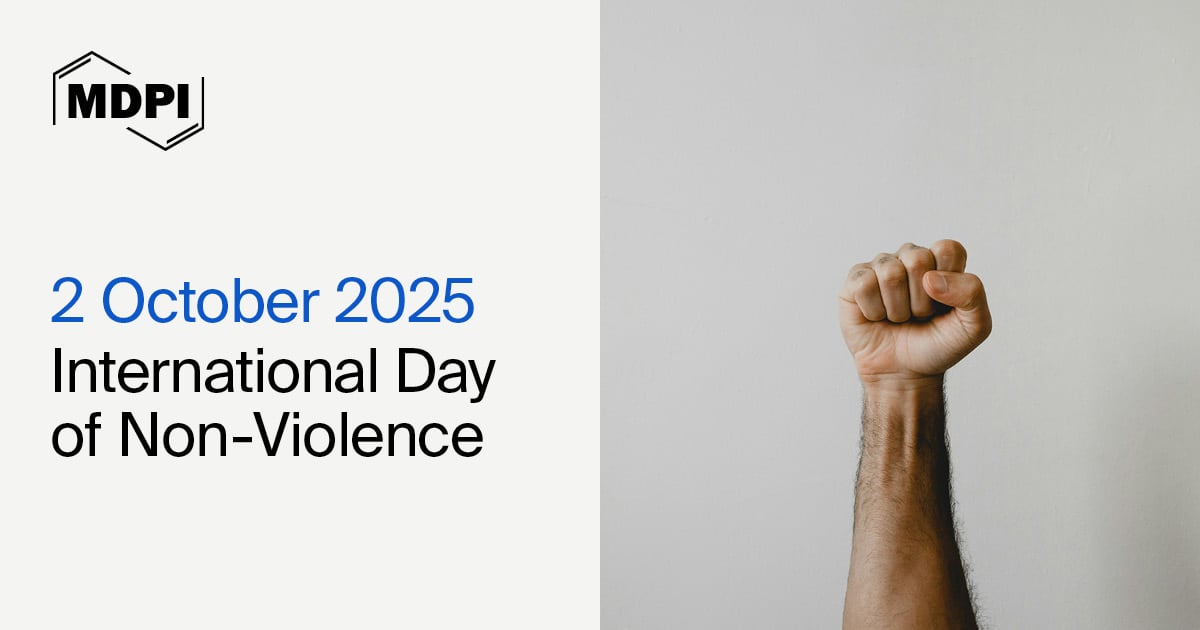- 1.6Impact Factor
- 3.0CiteScore
- 35 daysTime to First Decision
News & Conferences
Latest News & Announcements
Latest Conferences
Propose a Conference Collaboration
Promote and publicise your upcoming conference with MDPI.
All News & Conferences
News & Announcements
Article Layout and Template Revised for Future Volumes
11 December 2025
News & Announcements
Human Rights Day—“Human Rights, Our Everyday Essentials”, 10 December 2025
10 December 2025
News & Announcements
International Day for the Elimination of Violence Against Women, 25 November 2025
21 November 2025
News & Announcements
World Children’s Day, 20 November 2025
19 November 2025
News & Announcements
MDPI’s Journal Cluster of Social Studies
13 November 2025
News & Announcements
MDPI Launches the Michele Parrinello Award for Pioneering Contributions in Computational Physical Science
6 November 2025
News & Announcements
MDPI INSIGHTS: The CEO's Letter #28 - WSF11, Nobel Laureates, Proofig AI, Romania Summit, STM and FBF
4 November 2025
News & Announcements
MDPI’s Newly Launched Journals in September 2025
15 October 2025
News & Announcements
MDPI INSIGHTS: The CEO's Letter #27 - OASPA 2025, COUNTER 5.1, UK Summit in London, MDPI at the Italian Senate
2 October 2025
News & Announcements
International Day of Non-Violence, 2 October 2025
2 October 2025
News & Announcements
2024 MDPI Top 1000 Reviewers
1 October 2025
of 15



